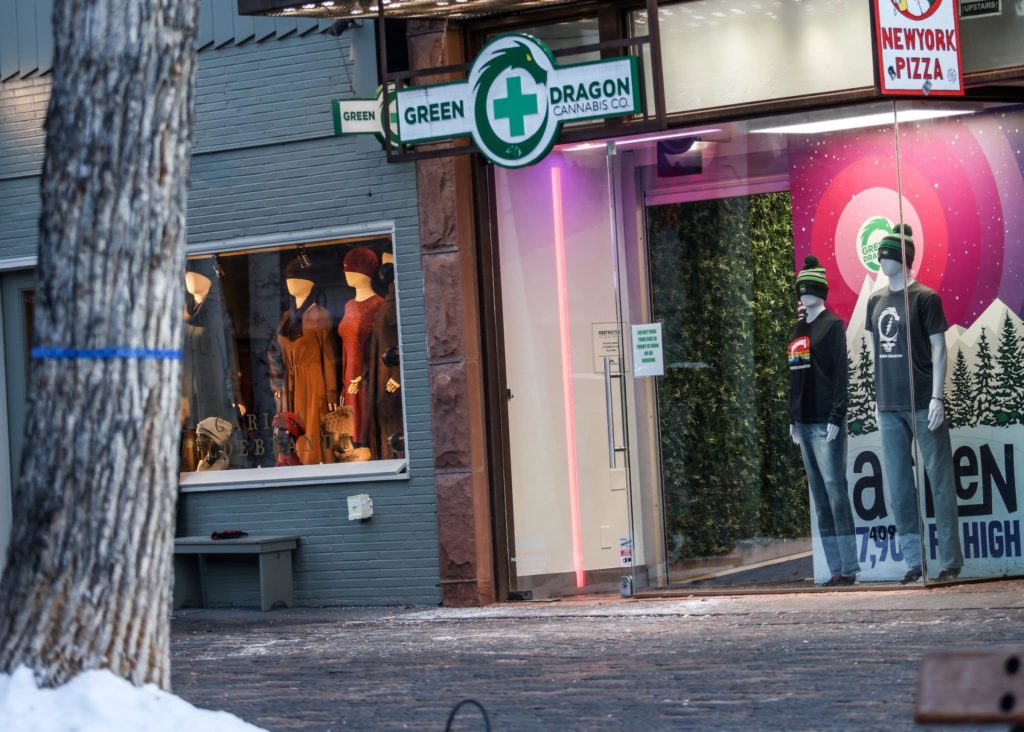Aspen Times
Aspen marijuana dispensaries in September snapped a six-month streak of declining sales with a 2.6% uptick over the same month last year but kept in line with a year-to-date, statewide industry slump.
September sales in Aspen alone were $881,146, an uptick of 2.6% over September 2021, according to the city Finance Department’s monthly sales tax report issued Tuesday. From January through September, Aspen’s nine recreational pot shops, one of which includes medical marijuana, recorded $7.8 million in sales, 12.6% behind the pace set in the first three quarters of 2021, the report said.
Statewide, recreational and medicinal dispensaries rang up $1.4 billion in sales through the first nine months of this year. That is behind the record-setting pace of $2.23 billion in sales for all of 2021, according to Department of Revenue data.
Chart indicates tax revenue brought in from sales of recreational and medicinal marijuana.
There’s not one particular force that can be blamed on the downturn, but, instead, it has been a number of factors, an expert said, noting such causes as legalization in other states, the economy, and more marijuana products than demand for them.
“The drop in sales statewide is really the result of a perfect storm of conditions, unfortunately, and those come in no particular order,” said Truman Bradley, executive director of the trade association Marijuana Industry Group, which is based in Wheat Ridge. “Inflation is hurting everybody, and there are certain things that are truly essential — that is, food on the table, you’ve got to have a place to live. Cannabis comes after that.”
Colorado dispensaries also enjoyed a somewhat cornered market on cannabis, becoming one of the first states to allow the sale of recreational marijuana starting in January 2014. But now, 21 states allow the sale of recreational cannabis, which has brought down marijuana tourism in Colorado.
“We’re the victims of our own success in Colorado,” said Bradley, adding that the state previously absorbed business from “both of our neighbors to south: Arizona and New Mexico,” where retail dispensaries began to open, respectively, in January 2021 and April 2021.
Additionally, Colorado growers had an “exceptional outdoor harvest” that produced an excess of marijuana that outweighed the demand, he said.
Colorado has collected $2.4 billion in tax proceeds generated from marijuana sales since 2014. In Aspen, the marijuana industry accounts for less than 1% of its overall sales-tax collections, according to this week’s report from the city.
For the state’s fiscal year 2022-23, funds from the retail and excise taxes will be placed into the Public School Capital Construction Assistance Fund, according to the state.
Meanwhile in Aspen, the retail economy produced $939.3 million in sales from January through September, 24.1% ahead of the same period last year. September alone generated $103.3 million in sales, down 2.9% from September 2021.
Taxable sales in September normally account for about 8% of the yearly total, said city Finance Director Pete Strecker in the report. This year’s overall growth indicates a bounce-back in consumer spending that will gradually plateau, he wrote.
The city of Aspen’s monthly tax report for September showed accommodations, restaurants/bars and the jewelry and fashion sectors showing the biggest gains.
“Given the monthly 1/12th share of annual sales being skewed in the last two years due to the influence of the pandemic during those periods, adjusting our monthly comparison back to pre-pandemic figures from 2019, it is shocking to see that 2022 taxable sales increased 62% this month when compared to the same period three years ago,” Strecker wrote. “Even when backing out the rough impact of inflation (~16%) over this time frame, this is a significant level of growth and is largely a reflection of the elevated consumption by the post-pandemic consumer that is likely to wane as pandemic savings levels have receded and as general consumer sentiment has eroded. “
H/T: www.aspentimes.com



